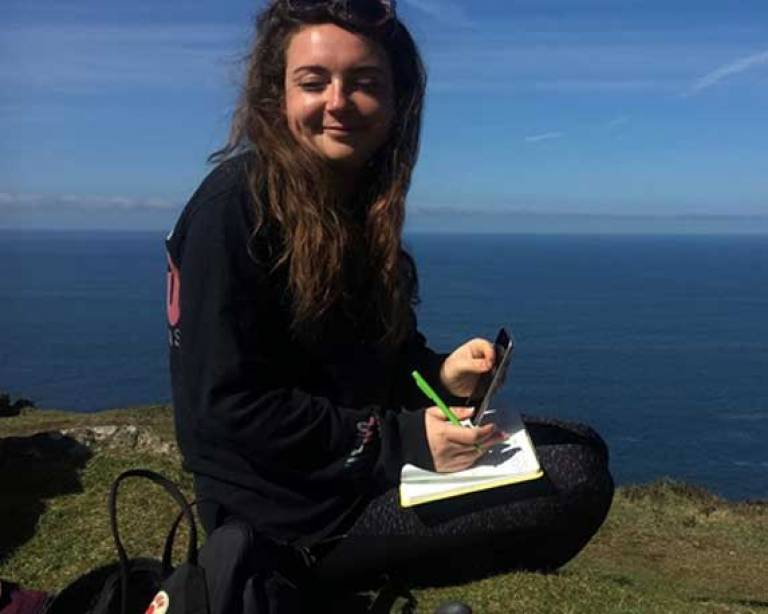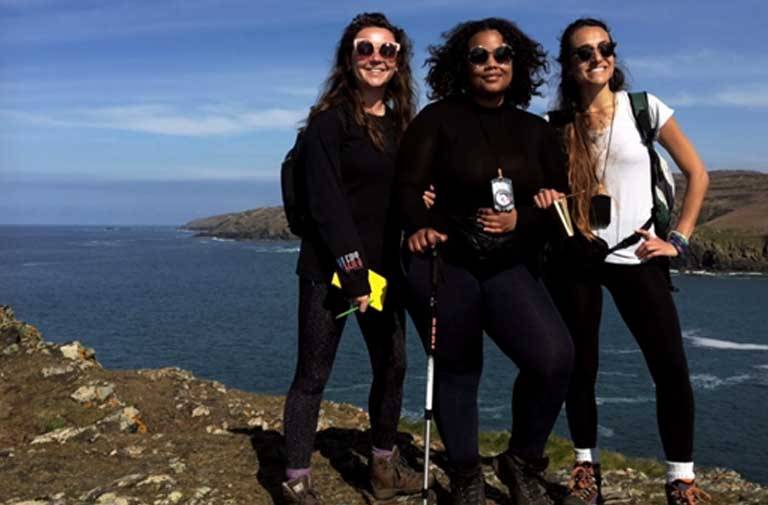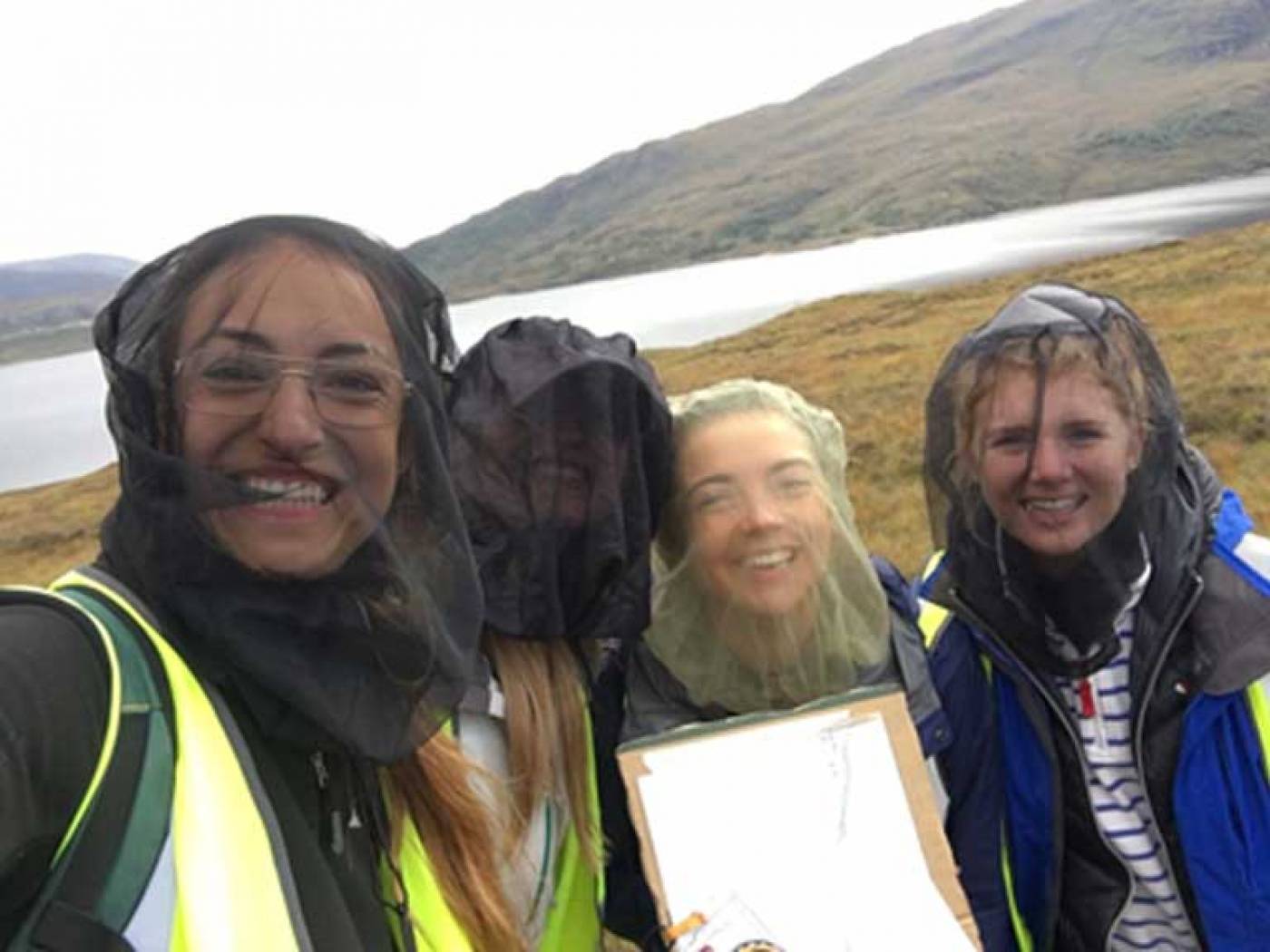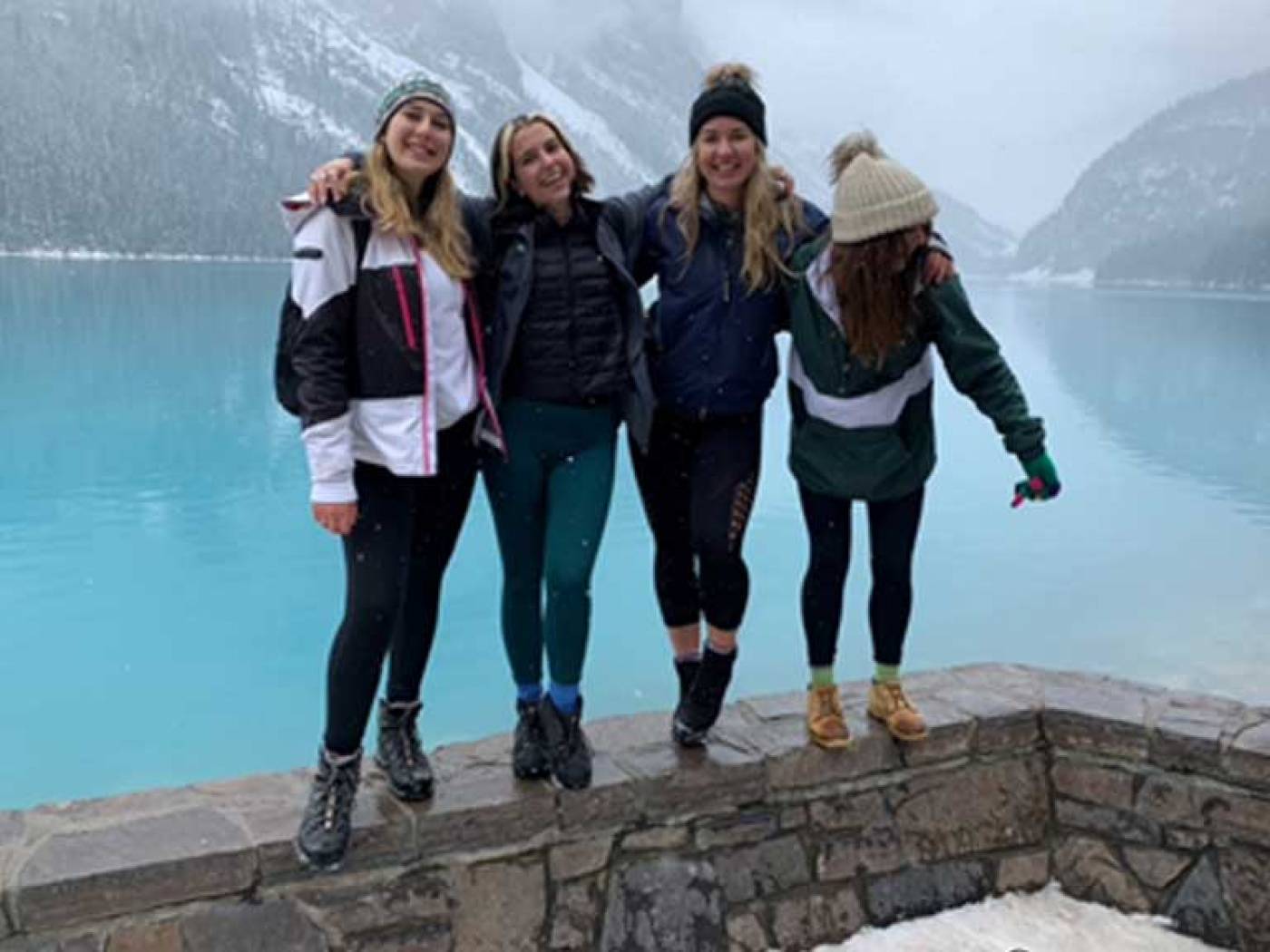Rachel graduated in 2021 with First Class Honours in Integrated masters, Geological & Earth Sciences/Geosciences. She is pursuing her interest in volcanology working towards PhD at Leeds University
I started my undergraduate studies at UCL in 2017, aged 22, after two previous attempts at university elsewhere. Although originally having concerns about being 'older' than the average fresher, it became obvious to me very quickly that not only was 22 not old at all, but that the UCL Earth Sciences department was a very accepting place for its student body.

Caption: Field trip to Lizard coast with UCL (April 2018)
“I found that the close knit nature of the UCL department left me feeling more confident about joining a new institution than I perhaps would have elsewhere. I feel that I am better prepared for the challenges that are now ahead of me, especially in independent learning, research and discipline, due to my time at UCL.
The advantage of joining a smaller department within the university is that you find yourself getting to know most of the year group, and most of the department, rather well. This is of course cemented by all of the field trips - an absolute highlight of any Earth Sciences degree. I cannot express how much fun they were - amazing locations (cool rocks and stuff), getting to know everyone on your course better and most often with multiple pubs nearby (if you are so inclined).

Caption: On a road trip to Banff, Canada on my year abroad (October 2019)
My third-year international exchange was based at the University of British Columbia (UBC). Fortunately, I had come from a kind, supportive department. For this reason, it was easy to assume that this warmth was common throughout the Earth sciences field, and thus I was not nervous to move to a new continent completely alone. I also loved that the international route was incorporated into the four year Integrated Masters (MSci) programme, meaning that I would not end up delaying my studies any further.
By the end of my second year I had continued to exploit the massive range of modules available at UCL - from crystallography to palaeontology to numerical modelling of earth processes. I actually enjoyed them all so much that no topic had yet stood out in particular. That is, until my enrollment in a volcanology module at UBC with the amazing Kelly Russell - this was when I first became inspired to pursue it. Additional field work definitely helped - visiting the active volcano Mount Meager a few hours north in British Columbia, as well as many sites of ancient glaciovolcanism just scattered about the region - this was so incredible to study first hand! It was during this year that I realised I wanted to continue research beyond undergraduate.
The opportunity to experience a different university/international teaching was invaluable and I met some incredible researchers and wonderful contacts that I will always be thankful for. Getting to live a different lifestyle from London was also surreal, including but not limited to frat parties, homecoming (ice hockey and american football) and exploring the unbelievable Pacific Northwest landscape and the Canadian Rockies. Having met some of my favourite people there, going on exchange proved to be one of my best decisions and I would highly recommend it to everyone!

Fieldwork - mapping in NW Scotland 3rd year course

Doing field work in NW Scotland at UCL (September 2019)
My year in Canada was sadly cut short in early 2020 by the pandemic. However, I was so grateful to see how, especially within Earth Sciences, the UCL staff made such an enormous effort to ensure that students would not be disadvantaged by all the global changes. It was really a testament to the department and made a real difference to know that they cared as much as we did about our work. While fourth year was less than ideal, with lockdowns continuing and trying to complete my independent research (masters) project, the continued work and open communication from the department made a really big difference to our daily lives and I think we were very lucky for this.
Eventually we made it through, and during this time I also began my applications for PhD projects around the country. Though I would have loved to stay at UCL, I wanted to leave London altogether (coming up to eight years living there). I was fortunate to receive an offer to research volcanic modelling from the University of Leeds - where I am now. I now study the internal dynamics of magmatic storage systems and how this may present as surface deformation, in order to contribute to a more effective global volcanic forecasting tool. Joining in October 2021, I found that the close knit nature of the UCL department left me feeling more confident about joining a new institution than I perhaps would have elsewhere. I feel that I am better prepared for the challenges that are now ahead of me, especially in independent learning, research and discipline, due to my time at UCL.
I am so glad I decided to pursue a PhD and am loving my time here in Leeds too - having already experienced some amazing fieldwork to the recent volcanic eruption on La Palma. I have loved my journey with Earth sciences so far, and I look forward to seeing what the future holds in terms of my research and career prospects.
 Close
Close

